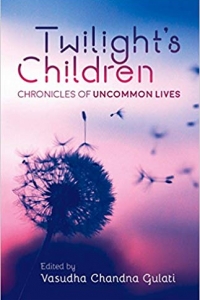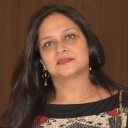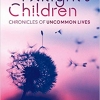
Have you ever walked into a room full of people who stare at you and then quickly avert their eyes? Or worse, are wary of you as if you were a bull in a china shop, needing to be monitored. Have you been kept hidden away in your home, sometimes even tied up like livestock? Have you had schools refuse you admission or had employers shirk from hiring you? Or are you constantly referred to as a burden, someone who will always need support, who will never carry their weight as contributors to
society? Ever had it thrown in your presence that your existence on earth is the result of bad karma in your parent’s past life? Let me further tilt your axis as I state the people in whose shoes I ask you to walk, are simply unable to fathom the extent of prejudice with which their capabilities have been measured.
Harsh, right? Truth always is, bitter and unpalatable. This, however, is an everyday story for over 2 million individuals and will be a reality for 1 in every 97 children born in India in this very moment when you are reading this. The question of intellectual disability is perhaps the most difficult to confront. Ignored, shunned and often invisible, these members of society are greatly wronged, for they have been denied not only freedom, but dignity as well.
Mahatma Gandhi is attributed to having said: A nation’s greatness is measured by how it treats its weakest members. So are we doing our best to ensure our nation’s greatness is secure? There was a time the cynic in me would have proclaimed, certainly not! Fortunately, this is not so anymore, for in the past months through the Inclusive India Initiative, I have come across some very fine individuals. These passionate beings have made it theirlife’s mission to be the voice of the voiceless.
Various campaigns across varied platforms are attempting to create a framework for a society which embraces and includes persons with intellectual and developmental disabilities to grant them the most basic of human rights—respect.
It has been observed, many in the non-disability sector find it hard to comprehend or even relate to the isolation individuals with disabilities and their families face every day. For the concept of developmental disability simply does not touch a large percentage of the lives of our populace. It was with this thought that Readomania in partnership with Inclusive India Initiative–National Trust ran the contest called Chronicles of an Uncommon Life. The express purpose of this contest was to crowd source stories reflecting some of the challenges persons with intellectual and developmental disabilities as well as their caregivers undergo. The response received has resulted in the carefully curated stories and essays in this book you hold. The stories are works of fiction threaded with realism, and the essays are voices of some, who are part of
the tribe where inclusion is practiced.
The tales in this book bring you a mixed bag of feelings. Some will break your heart while some will make you smile and give hope. Here you will read about a mother’s struggles with doing the practical thing, but when can emotions be handled practically. You will wonder how a stranger suddenly finds himself looking after a child with autism, and as you read how a fatherloves his disabled son enough you will come to the realisation that mamata is gender neutral. You will find doctors who feel the strength of humanity and sacrifice only true love can withstand. Once you delve into the real story of adoptions in the differently-abled sector you will weep at the burdens we cannot carry, but they do. You will learn lessons of love from a dog, and you will journey inside the mind of a person who can neither understand nor communicate,
then just a yes or no will suffice for you too. Your heart will break with two sisters, one neuro typical and the other differently-abled, in a tale of love and betrayal. You will find extreme fortitude, sibling love and insecurities, parents with fierce determination, friends who learn to overcome peer pressure, reluctant volunteers who discover compassion. You will discover how schools work to create an atmosphere of inclusion, how corporates benefit from creating spaces for the disabled and how NGOs carve out opportunities for their precious charges. A judge will reveal how the law tries to bridge the gap with reasons to include. You will also look into the souls of parents and siblings whose only request to you is not to pity them or their dearly loved special ones. With the subtle kick-in-the-gut realism these stories offer, you will conclude like one of the authors in this book: Life is a series of fortunate learning stories, and not a string of misfortunes.
I do not claim that this book is an all-encompassing look at the issues confronting people with intellectual or developmental disabilities and their caregivers. In fact it is
only a sneak peek into their world. There is a lot more to be said and a lot more to be done. A step is taken, may there be numerous more.
Every writer in this book has looked into the hearts of the people whose cause they espouse, I want to express my gratitude to them for their beautiful work which makes this a meaningful book. I would also like to thank Indrani Ganguli of Readomania, for agreeing to be my mentor in this editorial journey, without her immense encouragement I would not have found my much needed confidence.
Now I leave you to read the stories with one last thought, discrimination begins when the celebration of birth is drowned in tears, when childhood is segregated and
adulthood negated. When dawn is treated as twilight.
About the Author







Comments